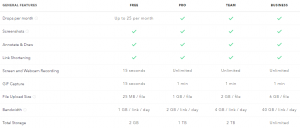By Sarah Friar
My greatest mistake was thinking success looked like a specific thing. For me, that was making partner at Goldman Sachs. When I didn’t, it set me free.
I’m going to go back to the moment when things shifted for me. One morning in 2011—after 11 years on the partner track at Goldman, where I had been a very young VP and just assumed partner was the natural next progression for me—I got a call.
It was about 6 a.m. in San Francisco in November. I was an equity analyst covering software working East Coast hours on the West Coast, and the market was about to open. I picked up the phone and was told, “It’s not your year.”
Determining partners is an every-two-years decision, so it wasn’t even “not your year,” it was “not your two years.” When I heard that, I think I was in shock. I went through all the stages of grief in about five minutes: sadness, anger, all of them. Then I did what I do in moments like this: I called my husband David, who’s one of my best mentors and listeners. He said: “Leave.” I’m like, what are you talking about? I’m at work. He’s like, “Just leave. I’m walking over right now.” We go outside and we walk around the building and I start to cry. He let me kind of talk it out and rant. I’m Irish — I can let off steam with the best of them. I also have a bias toward action, so my first thought was, “I’m gonna get back on this track and prove them wrong.”
Then I envisioned staying for 24 more months, 600 days, and I just felt exhausted. A new mountain had appeared in front of me and I didn’t know if I had the energy to start scaling it.
David stopped me as we walked and said, “You know, they just set you free.” Again, I’m like, what are you talking about? He said, “Look, you’ve always been more excited about people, and doing unexpected things, than about this stuff. You don’t owe them anything. Why isn’t this the best opportunity of your life?” He told me if I wanted to stay and go after it again in two years, I’d have his full support. But if I wanted to leave and reinvent myself, I also had his full support. It was just a really incredible moment of taking a breath, being totally stopped in my tracks, and thinking maybe this is a sign that I should be doing something different. I thought, okay, now what?
The problem with a career checklist
The way I perceived myself at that time, I felt that I had checked every box. I was financially good, great at my job, doing all these other things of the firm, like helping run the San Francisco office’s research. I felt like I’d done the checklist. In my perfectionist mind, I had decided what success looked like. That’s on me, not on Goldman. A lot of women have a checklist and a scorecard that keeps us asking, Are we doing everything right? Are we checking things off? When I mentor men, they don’t have the same checklist. And it’s not just work for women. It’s: Are you being a good mom, did you go to the choir performance, did you make a good dinner, did you remember to send Christmas cards? It’s expected of us, and we also fuel the fire of perfectionism, making the extra lists, not viewing ourselves as successful if we’re not firing on all cylinders.
I often get asked, “What would you tell your 16-year-old self?” I’d tell her to get over the perfectionist thing. Stop trying to be a straight-A student. We think striving for perfection is an accelerant but, in reality, it makes you risk-averse, emotionally bound to your scorecard. It’s too hard to live under that.
I grew up in a small community in Northern Ireland during the Troubles. I knew I wanted to leave—I was curious, I wanted to experience other things—but my family had little to no money. I had to get the best grades because there was nothing else helping me. Coming to the U.S. at 26 for business school, then taking a job at Goldman with a boatload of debt and a need for a work sponsor, I had the immigrant psyche that I had to be perfect. I felt that the reason I was getting to stay and have this life is that I’m always going to work harder and outwork others. Not being born here, being a woman, being in an environment where I was never completely comfortable and often the only woman in the room, I felt like I had to be better just to be at the same table.
I thought if I didn’t run harder, faster, stronger than everyone else, I was going to fail. I had a breakthrough when my husband said: “They set you free.” From that moment forward, I’ve taken a totally different life path, and I’m grateful for it.

Maybe I’m not employable?
At first, after being told I didn’t make partner, I thought maybe I’m not employable. I didn’t know what else I’d be qualified to do. A lot of people said, “Oh, you’ve done finance, you could be a CFO.” Which is nothing at all like being a research analyst. It’s like saying you’ve taken a CPR class, so you should be a doctor. After some soul searching, I realized I had the ability to be a good operator, to be a visionary and see where there’s opportunity to create something the world needs. And to be passionate about something and bring this energy to it.
I happened onto the Japanese concept of Ikigai. It’s about how these four quadrants converge in your life: What you’re good at, what you’re passionate about, what the world needs, and what you can get paid for.
Goldman was about what I was good at, and could get paid for. I then went to Salesforce in a finance and strategy role, where I was able to learn so much about operating a business from the inside. Following that, I moved to Square, where we were able to create economic empowerment, which was one vision of what the world needed. Finally, I came home to roost at Nextdoor, and all four quadrants converged.
I’m really passionate about community. It’s definitely what the world needs, for the social capital to be knitted back together again at a local level. And local is the only place I think change like this can happen. I’m so glad to get to do what I do. But I actually think it really, really matters, and if I don’t do it, someone else needs to do it. I can be good at it, and then I can get paid for it. It’s a job, not a hobby. Getting here was just a complete unleashing of a totally different path in life.
But it doesn’t happen overnight and, for me, it was a process. After Goldman, because I was literally unemployed, I had no rhythm to my day. And that changes your whole mindset. You can’t fall back on ritual and pretend you’re being productive. The second thing about that period of time is that I got to meet so many people. I tried to make myself not make any decisions about what to do next, so I would just meet people, talk, learn, and network. I would hike almost every day with a friend. We don’t allow ourselves enough time off the hamster wheel. When we’re on it, there’s no time to reflect and reimagine. There are so many meetings and so much busywork in Corporateville. But often, there’s nothing to show for all the busyness.
Keep your network warm
My advice to others who find themselves stuck on the perfection track is to start with small steps. Go have a walk in the park in the middle of the day. If you get asked to join yet another committee, say no so you give yourself the opportunity to say yes to the other things. Give yourself some space to truly think about the right path for you. For me, in the quiet time between Christmas and New Year’s Day, when I’m not working, I’ll sit down for down half a day with a notebook and pen, and write down what gave me energy this year, what took away my energy, and, when I get to this time next year, what’s my “hell yes”? And then I ask, “Have I allocated time to that? Do I have mentors and people in my network that I am spending time with who help me open up that space?”
At Nextdoor, one of the big pieces of research we did found that knowing six neighbors is all you need to prevent social isolation. It’s good for your health. As we get older, our network gets more fully baked and less open, so try to make yourself open to talking to people. We don’t know what we have in common or where conversations will go. When you make a connection with that person, ask if there is someone else they would suggest you talk to. Maybe not the first coffee you have, but the fifth. And remember that not every interaction has to end with something big in that moment. It’s often a year later or five years later, you kind of reconnect. So, always be keeping your network warm, nurtured, and loved. Ask for advice, ask for help. A lot of women find this more difficult, but it’s the Benjamin Franklin effect: People feel more invested in you if you’ve asked for help.
My mistake was limiting how I thought of myself. I mean, there were a lot of tactical mistakes about where my time and focus were spent, and that scorecard I kept for myself. But I think the strategic mistake was limiting what I brought my full self to.
As told to Marina Khidekel
(19)





